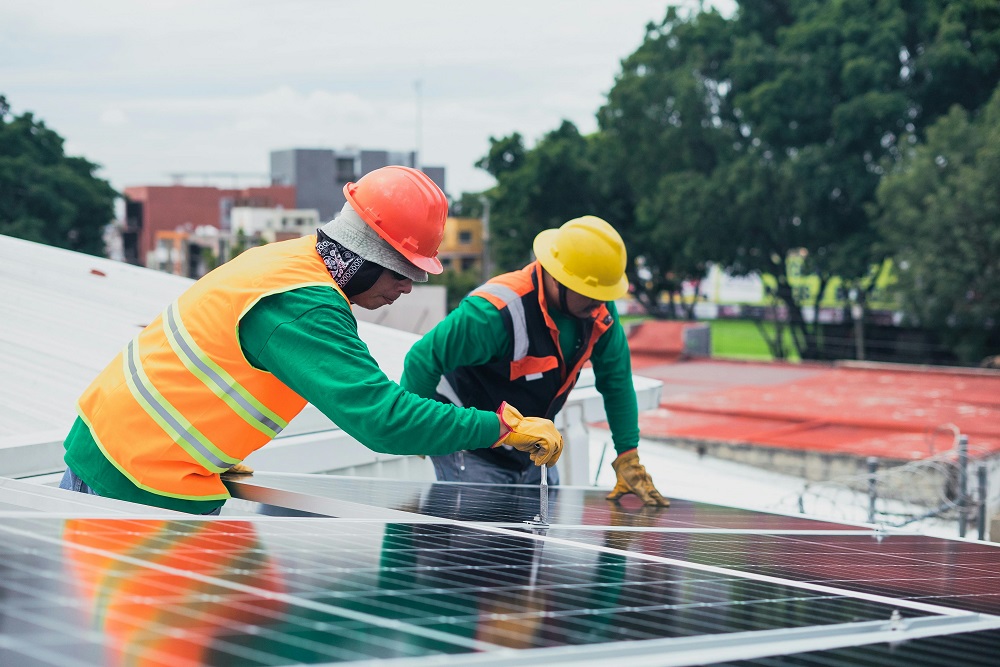Support the World at Large

As a leader in the construction industry, Teraco is committed to minimizing our environmental impact and promoting sustainability. Our approach to green building encompasses innovative engineering practices, eco-friendly materials, and energy-efficient designs. In this blog post, we explore Teraco's commitment to sustainable engineering and how it influences our construction projects.
Understanding Green Building
What is a Green Building?
Green building, also known as sustainable construction, focuses on reducing the environmental impact of buildings throughout their lifecycle. This includes everything from design and construction to operation and maintenance. Green buildings are designed to minimize energy consumption, conserve water, and utilize renewable resources. By incorporating sustainable practices, green buildings promote environmental stewardship and contribute to a healthier planet.
Importance of Sustainable Engineering
Sustainable engineering plays a crucial role in green building projects. It involves designing structures and systems that are energy-efficient, resource-efficient, and environmentally responsible. Sustainable engineering considers factors such as building materials, energy usage, water management, and indoor air quality. By integrating sustainable engineering principles into construction projects, Teraco strives to minimize waste, reduce carbon emissions, and create buildings that are environmentally friendly and economically viable.
Teraco's Sustainable Engineering Practices
Energy-Efficient Designs
At Teraco, we prioritize energy-efficient designs that optimize natural light, ventilation, and insulation. Our architects and engineers employ passive design strategies to reduce the need for artificial heating and cooling, resulting in lower energy consumption and reduced greenhouse gas emissions. By maximizing energy efficiency, we help our clients save on utility costs and minimize their carbon footprint.
Use of Eco-Friendly Materials
We believe in using eco-friendly materials that are sustainably sourced and have minimal environmental impact. Teraco selects building materials that are renewable, recycled, or locally sourced whenever possible. This includes materials such as bamboo flooring, reclaimed wood, recycled steel, and low-VOC (volatile organic compound) paints. By choosing green building materials, we reduce the depletion of natural resources and minimize waste during construction.
Water Conservation Strategies
Water conservation is another key aspect of sustainable engineering at Teraco. We implement water-efficient fixtures, rainwater harvesting systems, and drought-tolerant landscaping to reduce water consumption in our buildings. These strategies help conserve precious freshwater resources and reduce the strain on municipal water supplies. Additionally, we design efficient irrigation systems that minimize water waste and promote healthy landscapes.
Renewable Energy Integration
To further reduce our carbon footprint, Teraco integrates renewable energy sources into our construction projects. We design buildings with rooftop solar panels, wind turbines, and geothermal heating and cooling systems to generate clean, renewable energy onsite. By harnessing renewable energy, we reduce reliance on fossil fuels and contribute to a more sustainable energy future. Our renewable energy solutions not only benefit the environment but also provide long-term cost savings for building owners.
Benefits of Green Building
Environmental Benefits
Green building offers numerous environmental benefits, including reduced carbon emissions, improved air and water quality, and preservation of natural resources. By constructing green buildings, Teraco helps mitigate climate change, protect ecosystems, and promote biodiversity. Our commitment to sustainable engineering contributes to a healthier planet for future generations.
Economic Benefits
In addition to environmental benefits, green building also delivers economic advantages. Energy-efficient buildings have lower operating costs, as they require less energy for heating, cooling, and lighting. Green buildings also have higher resale values and command higher rents, making them attractive investments for building owners. By prioritizing green building practices, Teraco helps clients save money while maximizing the long-term value of their properties.
Social Benefits
Green building promotes occupant health and well-being by providing a comfortable, healthy indoor environment. Buildings designed with sustainable engineering principles have better indoor air quality, natural daylighting, and thermal comfort, leading to increased productivity and satisfaction among occupants. Additionally, green buildings contribute to vibrant, resilient communities by fostering social equity and promoting sustainable lifestyles.
Teraco's commitment to sustainable engineering is at the heart of our green building philosophy. By incorporating innovative design strategies, eco-friendly materials, water conservation measures, and renewable energy solutions, we create buildings that are environmentally responsible, economically viable, and socially beneficial. Our approach to green building reflects our dedication to leaving a positive legacy for future generations and building a more sustainable future. As we continue to innovate and push the boundaries of sustainable construction, Teraco remains committed to leading the way in sustainable engineering and green building practices.